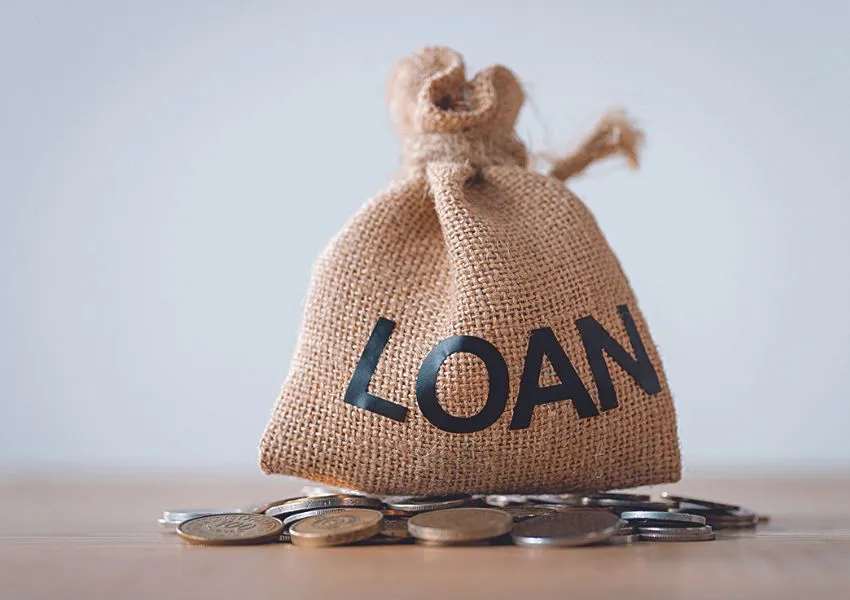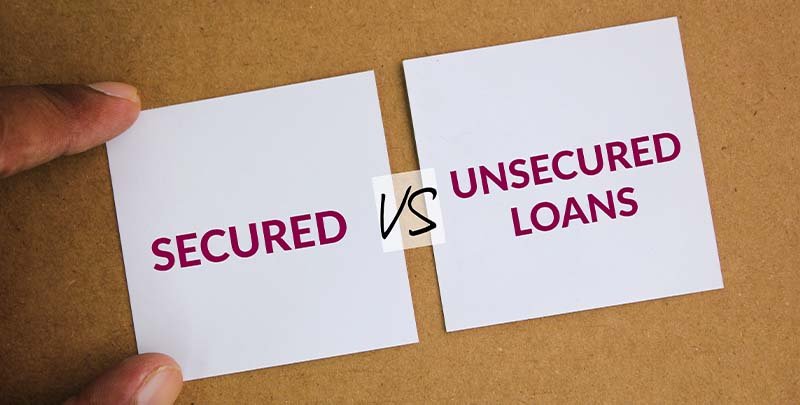Life is full of unexpected twists, and sometimes, you need extra financial help to cover big expenses, be it buying a home, starting a business, or handling an emergency. When you need to borrow money, lenders typically offer two main types of loans: secured and unsecured loans.
So, what is the difference between secured and unsecured loans? The key distinction lies in whether the loan requires collateral, an asset that backs the loan in case you can’t repay it. Secured loans are tied to an asset (like a house or car), while unsecured loans rely solely on your creditworthiness.
What’s the Difference Between Secured and Unsecured Loans?
The fundamental difference comes down to one key factor: collateral. With a secured loan, you’re required to pledge valuable assets as security, this could be commercial property, equipment, inventory, or even outstanding invoices. These assets act as a safety net for the lender.
If your business hits rough patches and can’t make payments, the lender has the right to claim these assets to recover their money. On the other hand, an unsecured loan doesn’t demand any physical collateral. Instead, lenders base their decision on your financial health.
They’ll scrutinize your cash flow patterns, revenue consistency, and overall creditworthiness. This makes unsecured loans particularly attractive for individuals who either don’t have substantial assets to pledge or prefer not to risk them.
While unsecured loans offer the advantage of no collateral, they typically come with stricter approval criteria. Lenders need to feel confident that your income streams are strong and reliable enough to handle repayments without the backup of secured assets.

READ MORE
Platforms To Get Instant Loan In Nigeria
Can You Get a Personal Loan With No Credit History?
Why Do Loan Applications Get Rejected?
What Is a Secured Loan?
A secured loan is a loan backed by collateral, something valuable that you own, like a house, car, or even a savings account. If you fail to repay the loan, the lender can take the collateral to recover their losses.
How Secured Loans Work
You pledge an asset (collateral) to secure the loan.
The lender evaluates the asset’s value before approving the loan.
If you default (stop paying), the lender can seize the asset.
Once the loan is fully repaid, the lender releases the lien (claim) on your asset.
Common Types of Secured Loans
1. Mortgages: Your home serves as collateral.
2. Auto Loans: The car you’re financing is the collateral.
3. Home Equity Loans (HELOCs): Borrow against your home’s equity.
4. Secured Personal Loans: Backed by savings accounts or other assets.
Pros of Secured Loans
Lower interest rates (less risk for lenders).
Easier approval (even with poor credit). Higher borrowing limits (based on collateral value).
Cons of Secured Loans
Risk of losing your asset if you default.
Longer approval process (due to collateral evaluation).
What Is an Unsecured Loan?
An unsecured loan doesn’t require collateral. Instead, lenders approve you based on your credit score, income, and financial history. Since there’s no asset backing the loan, lenders take on more risk, which often leads to higher interest rates.
How Unsecured Loans Work
No collateral is needed; approval depends on creditworthiness.
Lenders check your credit score, income, and debt-to-income ratio.
If you default, the lender can’t seize any assets but may take legal action.
Common Types of Unsecured Loans
1. Personal Loans: Used for various expenses (debt consolidation, medical bills, etc.).
2. Credit Cards: Revolving credit with no collateral requirement.
3. Student Loans: Typically unsecured (backed by government or private lenders).
4. Signature Loans: Approved based on your credit and promise to repay.
Pros of Unsecured Loans
No risk of losing assets (no collateral needed).
Faster approval (no collateral evaluation required).
Cons of Unsecured Loans
Higher interest rates (due to the lender’s increased risk).
Stricter credit requirements (needs good to excellent credit).
Lower borrowing limits (based on income and credit).
PEOPLE ALSO READ
Ways to Spot Personal Loan Scams and Protect Your Finances
What is The Best Type of Loan for a Small Business?
How Does Identity Theft Affect Loans?
Steps to Improve Credit Score Before Applying for a Loan
Which Loan Is Right for You?
Choosing between a secured and unsecured loan depends on your financial situation:
Choose a Secured Loan If:
You need a large loan amount.
You have poor or fair credit.
You own valuable assets (home, car, investments).
You want lower interest rates.
Choose an Unsecured Loan If:
You don’t want to risk losing an asset.
You have good or excellent credit.
You need quick funding without collateral checks.
Conclusion
Secured loans require collateral but offer lower rates and higher approval chances, while Unsecured loans don’t require collateral but have stricter credit requirements and higher rates. Before applying, assess your financial health, credit score, and borrowing needs.
If you own valuable assets and need a large loan, a secured loan may be best. If you have strong credit and prefer no risk to your property, an unsecured loan could be the right choice.
